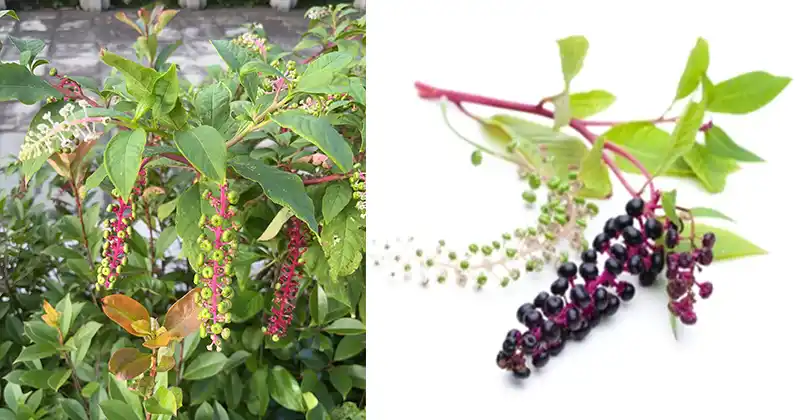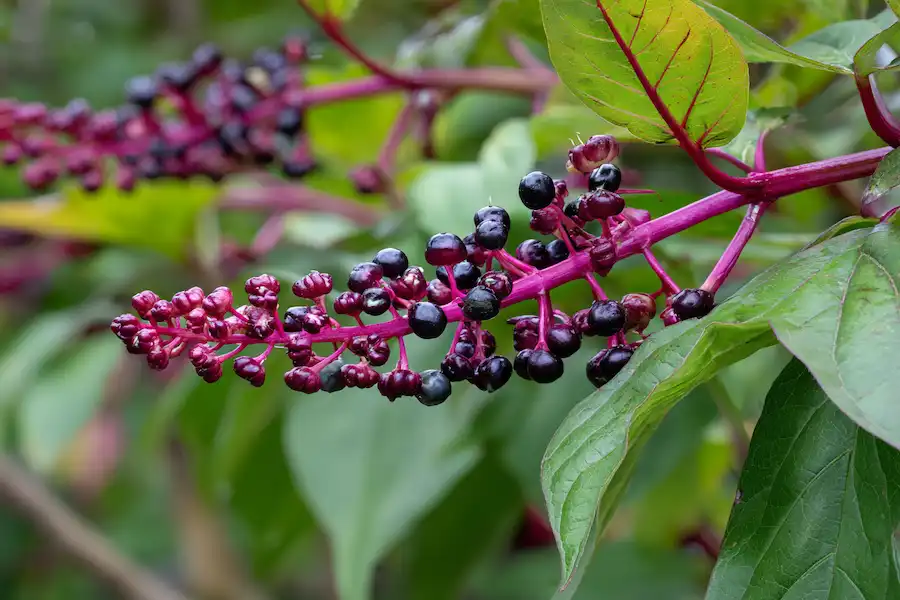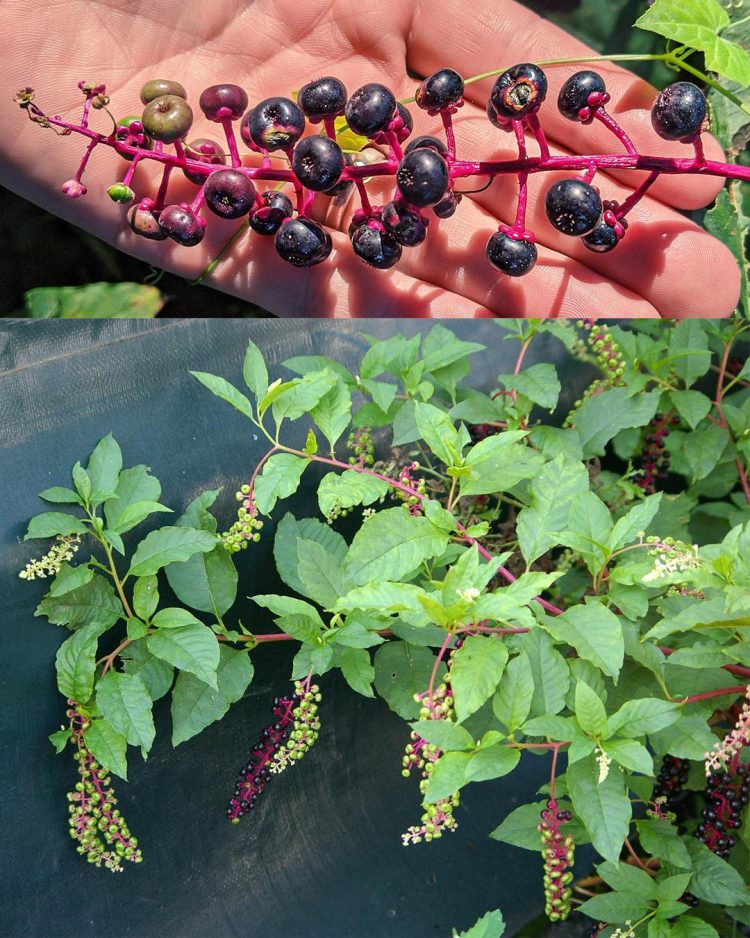Pokeweed (Phytolacca americana) is a striking perennial plant native to North America, often seen in fields, roadsides, and backyards. With its bright purple-black berries and tall red-purple stems, it may look harmless—even beautiful—but behind its vibrant appearance lies a dangerous truth. Pokeweed is highly toxic to humans, pets, and livestock. If you are new to gardening or foraging, understanding this plant is essential to keep yourself and your loved ones safe.

How to Identify Pokeweed
Pokeweed can grow up to 8–10 feet tall and has distinct features:
- Stems: Thick, smooth, and often bright reddish-purple as they mature.
- Leaves: Large, simple, and alternate, with a length of 4–12 inches.
- Flowers: Small, white to greenish-white, forming clusters that later develop into berries.
- Berries: Dark purple to almost black, resembling grapes, growing in elongated clusters.
It is often found in open fields, along fences, roadsides, pastures, and even in gardens where birds drop seeds.
Why Is Pokeweed Dangerous?
Every part of the pokeweed plant—root, stems, leaves, and berries—contains toxic compounds, including phytolaccatoxin and phytolaccigenin. These toxins can affect the gastrointestinal system, nervous system, and even the heart.
Toxicity Facts:
- Root: The most poisonous part of the plant. Even a small piece can be fatal.
- Leaves and Stems: Become more toxic as the plant matures.
- Berries: Especially dangerous for children, who might mistake them for edible wild fruits.
Symptoms of Pokeweed Poisoning
If pokeweed is ingested, symptoms can appear within 2–6 hours. These include:
- Severe nausea and vomiting
- Diarrhea (often bloody)
- Stomach pain and cramps
- Weakness and confusion
- Difficulty breathing
- Seizures or coma in severe cases
If any part of the plant is eaten, seek medical attention immediately.

Can You Eat Pokeweed?
see continuation on next page
